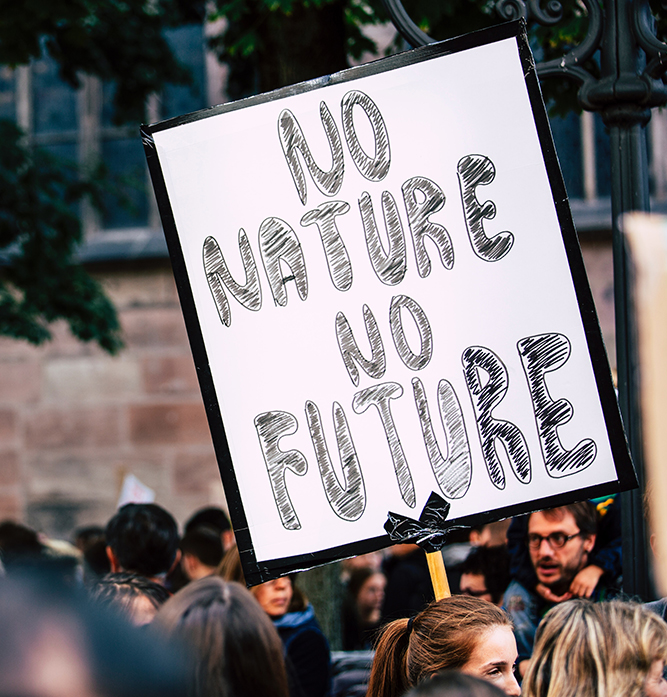MWCC Professor and Microbiologist Discuss Global Warming
By Hallie Coulter | Observer Contributor and Elysian Alder | Editor-in-Chief

Climate change is known to be one of the most important issues today. After years of industrialization, a growing population, and continuously burning fossil fuels, the earth has felt its effects. Fortunately, the state of Massachusetts and many of its residents have stepped up to do their part.
Heather Conn, the department Chair of Natural Science at Mount Wachusett Community College, shared that although she does not usually consider herself an activist, she believes that raising awareness about climate change, helping change others’ behaviors, and being mindful of the way we live our lives can go a long way toward slowing the effects of global warming . “We need to learn about modifying behaviors to slow it and live with it,” Conn explained. “It’s happening.”
Some of the ways Conn has modified her own behaviors in the hopes of helping the planet are by driving a hybrid car, installing solar panels on her house, growing food herself, reducing her use of plastic, avoiding fertilizers and pesticides, mowing her lawn less, and so much more.
Massachusetts resident Chelsey Pellegrino also has a vested interest in climate change and a similarly strong passion for the environment. Pellegrino is a quality control microbiologist at ElevateBio—a cell and gene therapy biotech company—and hopes to become an environmental researcher in the future. “If I were to sum up the way I view the global warming crisis in one word, I would use outraged,” Pellegrino shared.
She admitted that when she thinks about the condition of the planet, she is “saddened and worried, knowing that it may be close to the point of no return.”
Like Heather Conn, Pellegrino contributes to helping the planet by being environmentally conscious when making daily decisions such as avoiding single-use items, preventing waste, being vegan, and living a minimalist lifestyle to leave little-to-no carbon footprint behind.
Pellegrino shared that one of the best ways to combat global warming is by eating a plant-based diet, explaining that “this is because there is a large amount of methane by-product, land deprivation, and overuse of resources to produce meats and other non-plant-based foods.”
Conn and Pellegrino aren’t the only ones trying to take action. The Massachusetts government has been doing its part to help the global issue, as well. In August of 2008, the first state bill that targeted climate change was signed into law — the Global Warming Solutions Act, which focused on limiting greenhouse gas emissions with a goal of 80% fewer emission levels by 2050. It was not until March 26, 2021, when the Governor signed into law An Act Creating A Next-Generation Roadmap for Massachusetts Climate Policy, which, according to mass.gov, “requires the EEA Secretary to set interim emissions limits and sector-specific sublimits every 5 years.”
“I really wish I could say this will be a quick and easy fix; however, it is missing vital aspects, and there is no way it will help us come close to the goal of net-zero greenhouse gas emissions,” Pellegrino said while speaking about Massachusetts’ response to the climate change crisis. Although she feels there is still more to be done, she applauded the state government for caring about the climate and attempting to make an impact.
Pellegrino isn’t the only one with doubts. During the 2023-2024 legislative session, the environmental activist group Environment Massachusetts proposed a series of bills to state legislators addressing various critical areas that were absent in previous legislation, including: “Clean, Green, and Renewable Energy; Zero Carbon; Clean Water; Waste Reduction; and Protecting Public Health and Reducing Toxic Chemicals.” Although many of the projected dates for the actualization of these bills extend to 2035-2050, the ambition and urgency behind these proposals puts emphasis on the need for immediate action to address pressing environmental issues.
Similarly, Pellegrino shared that the most important part is “uncovering the truth of global warming,” stating that people “need to be aware of the actual issues,” which can be accomplished by larger organizations such as the federal government and major corporations ceasing to conceal the truths surrounding our planet’s critical climate crisis.
Comments are closed.